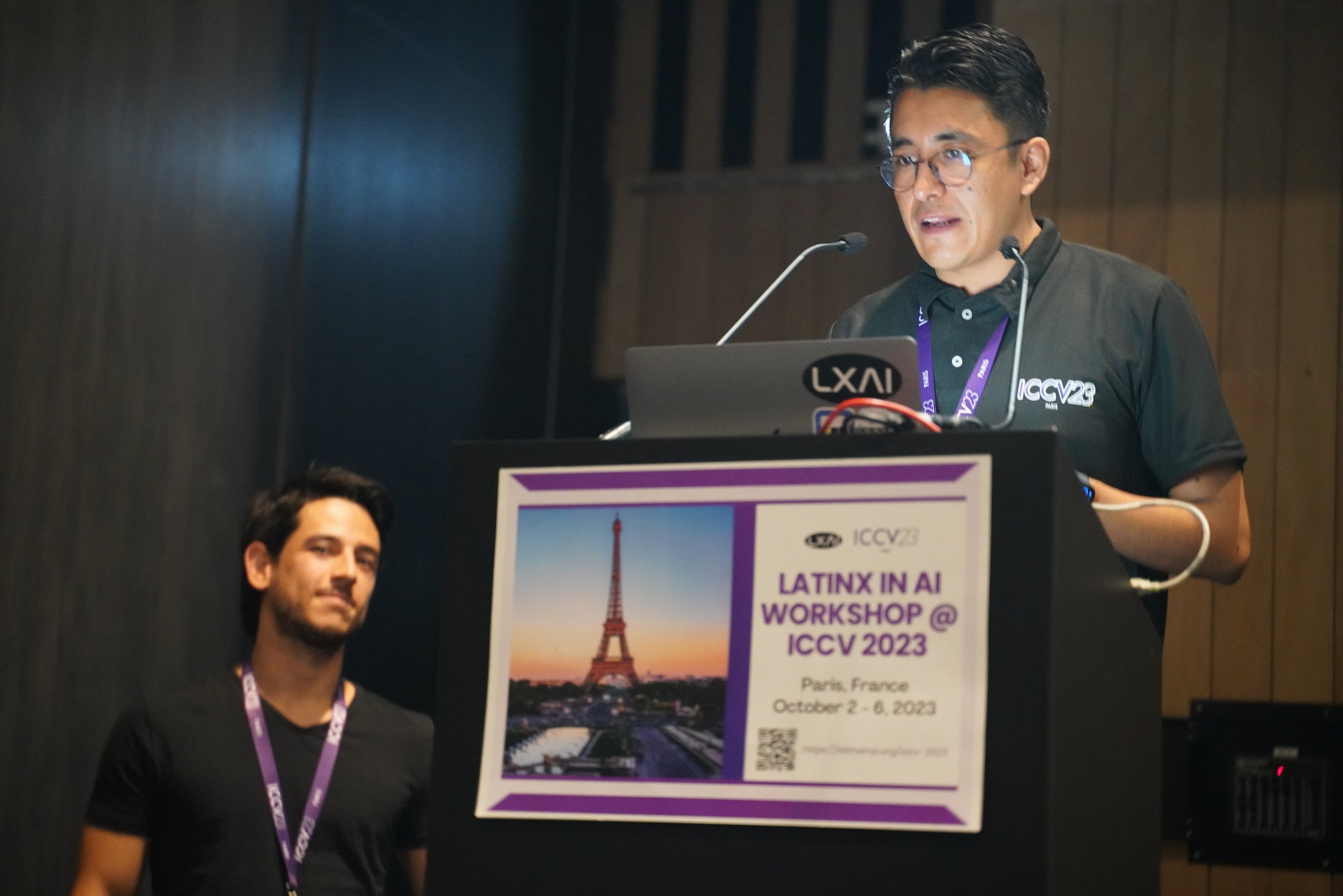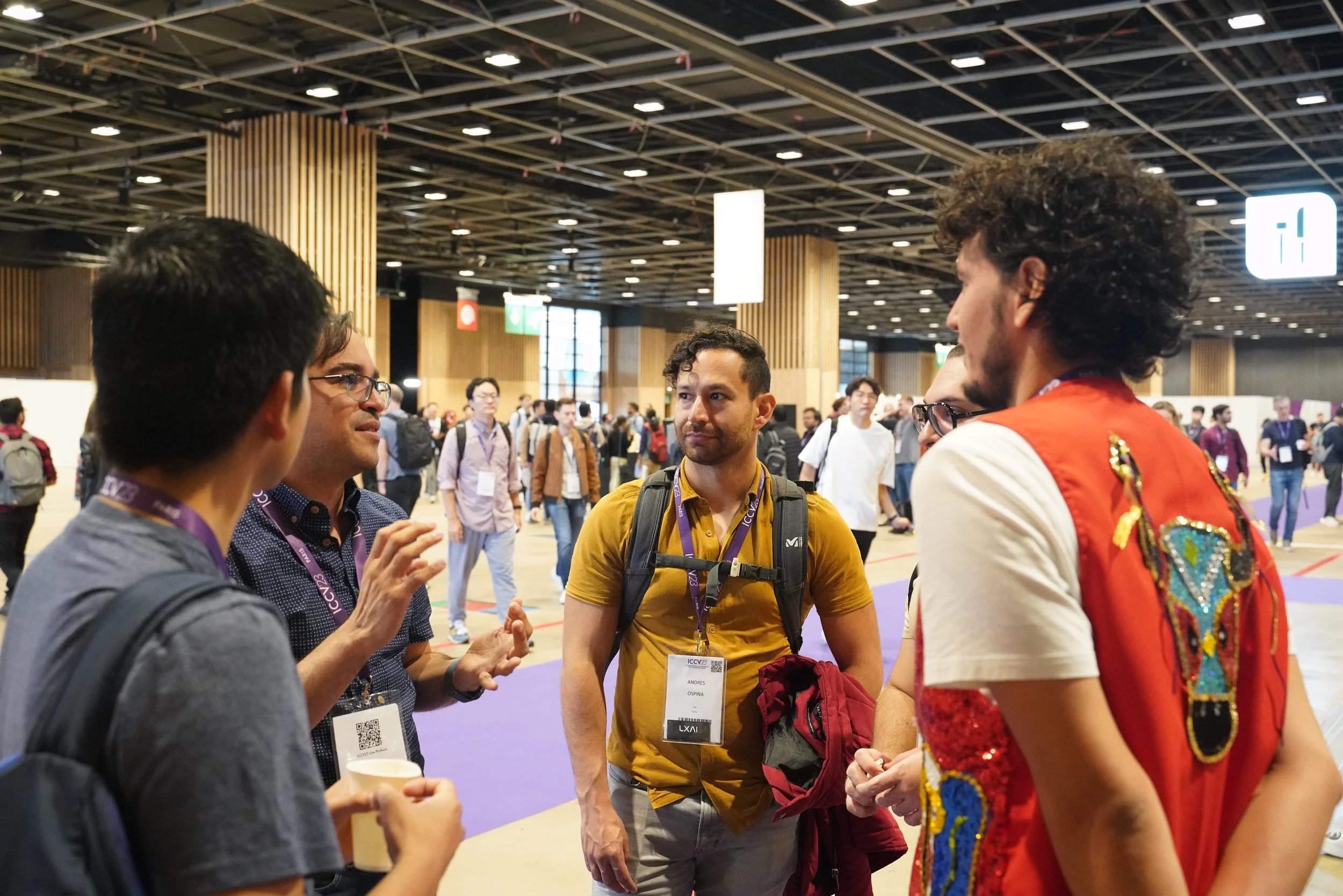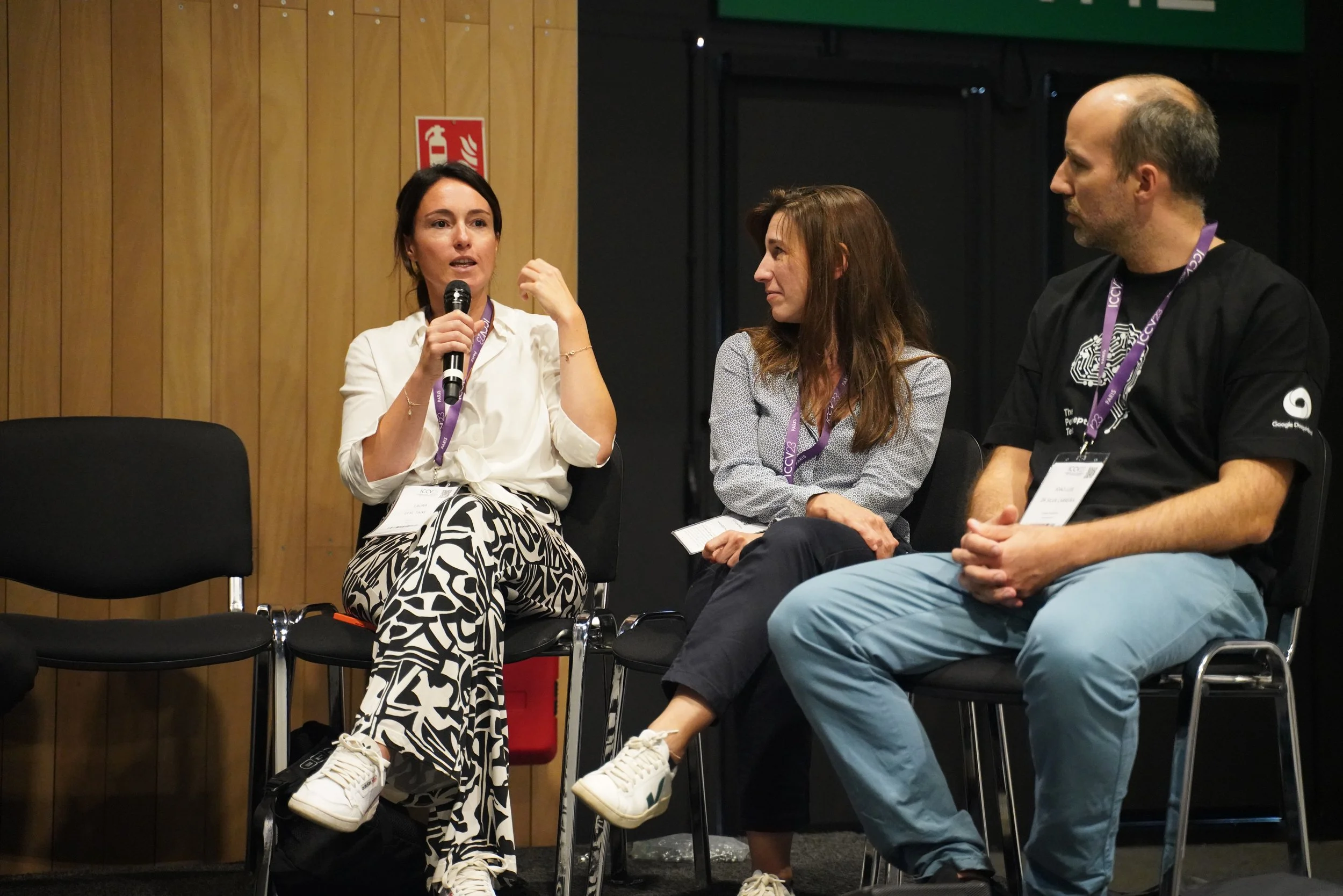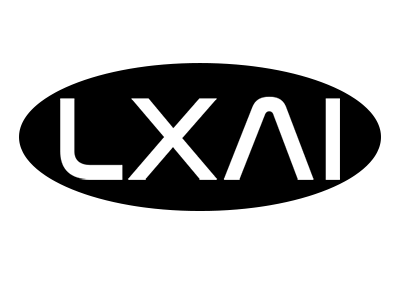LatinX in CV (LXCV) Workshop at ICCV 2023
This is an official LatinX in AI (LXAI) organization workshop, LatinX in Computer Vision (LXCV) at ICCV, which will happen in person at the Paris Convention Center in downtown Paris on October 3rd, 2023
How To Attend ICCV2023 Guide
ICCV 2023 will bring Paris more than 6000 members of the computer vision and machine learning community: students, researchers, engineers, entrepreneurs, investors, thought leaders and visionaries who strive to make AI for scene understanding, pattern recognition, image processing, etc., always better, sounder and more applicable. ICCV 2023 will be a unique opportunity to discover the latest ideas and innovations in the community, connect, recruit, get inspiration, and inspire.
FINANCIAL ASSISTANCE
LatinX in AI is committed to supporting LatinX & Hispanic individuals from all around the world. This year since the workshop and ICCV conference will be in person, we are happy to provide support for registration & travel grants. The financial assistance application is now closed.
If you have any questions, feel free to contact us at iccv-2023-chairs@latinxinai.org.
Check this document to know whether you need a Visa to travel to France.
Keynote Speakers
Dr. Enzo Ferrante is a faculty researcher at Argentina's National Research Council (CONICET), where he led the Machine Learning for Biomedical Image Computing research line. Dr. Ferrante completed his Ph.D. in Computer Sciences at Université Paris-Saclay and INRIA and worked as a postdoctoral researcher at Imperial College London in the UK. He has been a visiting student at the CVGL Lab at Stanford University (2014) and a Fullbright Visiting Researcher at the Martinos Center for Biomedical Imaging (2021) in Boston.
Dr. Laura Leal-Taixé is a Senior Research Manager at NVIDIA leading the Dynamic Vision and Learning group. She has been a tenure-track professor at TUM, a postdoctoral researcher at ETH Zurich, and a senior postdoctoral researcher in the Computer Vision Group at the Technical University in Munich. She obtained her Ph.D. from the Leibniz University of Hannover in Germany, and her B.Sc. and M.Sc. in Telecommunications Engineering at the Technical University of Catalonia (UPC) in Barcelona.
Features Speakers
Dr. Miguel González Mendoza holds an MSc and Ph.D. degree in Artificial Intelligence from the Institut National des Sciences Appliquées (INSA) in Toulouse, France. Since 2004, he has been working as a professor at the Computer Science Department at Tecnológico de Monterrey. Coordinator of several national research projects (CONACYT) since 2005. Local coordinator of six European Projects FP6, FP7 (2005-2015), and four on H2020 and Horizon Europe (2018-).
Dr. Julián Tachella received the electronic engineering degree from Instituto Tecnológico de Buenos Aires, Argentina, in 2016, and the Ph.D. degree from Heriot-Watt University, U.K., in 2020. He held a postdoctoral position at University of Edinburgh, U.K., from 2020 to 2021. Since 2021 he is a research scientist with the French national centre for scientific research (CNRS) at the École Normale Supérieure de Lyon in France.
Dr. Clarisa Sánchez is a Full Professor of AI & Health at the University of Amsterdam. She co-founded in 2020 the Quantitative Healthcare Analysis (qurAI) group focuses on developing, validating, and clinically integrating AI solutions to solve medical data challenges encountered in different steps of the patient pathway. Dr. Sánchez graduated in Telecommunication Engineering at the University of Valladolid, Spain. In 2008, she obtained her Ph.D. (cum laude) at the University of Valladolid.
Dr. Sebastian Ramos. With over a decade of experience dedicated to the development of AI products that save people’s lives, Sebastian embarked on his entrepreneurial journey in Germany in 2020. There, he founded his first startup, dedicated to building production-ready computer vision software for autonomous driving, with Volvo Cars as a primary customer. By 2022, he had expanded his entrepreneurial endeavors to Latin America with his second startup, digitalizing hospitals' operations through AI technology, already benefiting more than 10 facilities and tens of thousands of patients. Prior to this, from 2017 to 2020, Sebastian led the AI department of Zenuity’s Munich office, a joint venture between Volvo Cars and Veoneer. Before that, he pursued his PhD studies at Mercedes Benz, focusing on cutting-edge research in computer vision for self-driving vehicles.
Tutorial
Dr. Estefania Talavera is an Assistant Professor at the Data Management and Biometrics group at the University of Twente. Prior to joining the University of Twente, she was a lecturer and researcher in the Information Systems group at the University of Groningen. She holds a Ph.D. in Computer Science degree from the University of Barcelona and the University of Groningen. Her research interests include computer vision, machine learning, and their intersection for human behavior understanding.
Accepted Papers
Full Papers
Full papers will be showcased during oral presentations on the day of the event.
| Title | Presenting Author |
Affiliation |
|---|---|---|
| Gaussian Image Anomaly Detection with Greedy Eigencomponent Selection | Tetiana Gula | Ecole des Mines de Paris |
| Sub-Ensembles for Fast Uncertainty Estimation in Neural Networks | Matias A Valdenegro Toro | Department of AI, University of Groningen |
| A Simple and Robust Framework for Cross-Modality Medical Image Segmentation applied to Vision Transformers | Matteo Bastico | Mines Paris - PSL |
| An Experimental Protocol for Neural Architecture Search in Super-Resolution | Jesus L Llano Garcia | Tecnologico de Monterrey |
| Exploring Image Classification Robustness and Interpretability with Right for the Right Reasons Data Augmentation | Flávio Santos | Universidade Federal de Pernambuco |
| Optical Solutions for Spectral Imaging Inverse Problems with a Shift-Variant System | Sergio A Urrea | Universidad Industrial de Santander |
| Improving Automatic Endoscopic Stone Recognition Using a Multi-view Fusion Approach Enhanced with Two-Step Transfer Learning | Francisco Lopez-Tiro | Tecnológico de Monterrey |
Extended Abstracts
Extended abstracts will be showcased during poster presentations on the day of the event.
| Title | Presenting Author |
Affiliation |
|---|---|---|
| Snapshot Non-Light-of-Sight Imaging and Background Mapping with an Active Corner Camera | Hoover Rueda-Chacón | Universidad Industrial de Santander |
| MRI angiography cerebral vessel segmentation enhancement applying denoising Deep Learning methods | Daniela Herrera Montes | ITESM |
| BlendShift: Adaptive Neighbour Correction and Replacement for Efficient Neighbour Contrastive Learning | Imanol G Estepa | Universitat de Barcelona |
| Deep Plug-and-Play Algorithm for Unsaturated Imaging | Jorge Bacca | Universidad Industrial de Santander |
| Deep Learned Non-Linear Propagation Model for Compressive Spectral Imaging | Romario Gualdrón | Universidad Industrial de Santander |
| Memory Population in Continual Learning via Outlier Elimination | Julio Hurtado | University of Pisa |
| Optics lens design for privacy-preserving scene captioning | Paula Arguello Gutierrez | Universidad Industrial de Santander |
| Adapting the Hypersphere Loss Function from Anomaly Detection to Anomaly Segmentation | Joao Paulo Casagrande | Mines Paris |
| Going Beyond Nouns With Vision & Language Models Using Synthetic Data | Paola Cascante-Bonilla | Rice University |
| A Similarity Constrained Signal Selection Algorithm for Contrastive Learning In The Detection of Atrial Fibrillation | Carlos A. Fajardo | Universidad Industrial de Santander |
| Causal Scoring Medical Image Explanations | Daniel Flores Araiza | ITESM |
| Exploring cassava crop disease diagnosis using spectral data analysis | Estefania Talavera | University of Twente |
| Audio and Video Analysis using Machine Learning for Monitoring the critically endangered species Atlapetes blancae | Julian D Santamaria | Universidad de Antioquia |
| Learnable sub-pixel satellite images coregistration with deep neural networks | Andres Felipe Perez Murcia | University of Manitoba |
| Pose Estimation for Two-View Panoramas based on Keypoint Matching: a Comparative Study and Critical Analysis | Jeffri Murrugarra Llerena | Federal University of Rio Grande do Sul |
| Optimized Binary Neural Network using a Periodic Regularization for Hyperspectral Image Classification | Paula Arguello Gutierrez | Universidad Industrial de Santander |
| PRIFACE: A Novel Pipeline for Enhancing and Evaluating Face Anonymization | Pedro k Brant | Cin UFPE |
| IoT Network Security: Unveiling the Power of Self-Supervised Learning against DDoS Attacks | Josue G Almaraz-Rivera | Tecnologico de Monterrey |
| Leveraging Unlabeled Data for Sketch-based Understanding | Nils Murrugarra-Llerena | Weber State University |
| Simple Data Augmentation Method for Improving Robustness by Sampling Adversarial Perturbations | Iván Reyes-Amezcua | CINVESTAV |
| Endo-ViT: Color-aware Exposure Correction for Endoscopic Imaging via a Lightweight Vision Transformer | Ricardo Espinosa | Universidad Panamericana |
| Progressive Self-Supervised Multi-Objective NAS for Image Classification | Cosijopii Garcia-Garcia | INAOE |
| Analysis of Meta-Learning Methods in a More Realistic Cross-Domain Scenario | Dustin J Carrion | TU Darmstadt |
| Bridging the gap between farmers, agronomists, and merchants through smartphones and machine learning | Laura V Galvis | Universidad Industrial de Santander |
| Identifying Sea Turtles on Mexican Nesting Beaches Using Deep Learning and Multimedia Approach | Arturo Rios-Ramos | INSTITUTO POLITECNICO NACIONAL |
| Learning Semantic Segmentation with Query Points Supervision on Satellite Imagery | Santiago Rivier | KAUST |
| Harnessing Automated Hierarchies for Triplet Contrast-based Fine-grained Recognition | Jesús M Rodríguez-de-Vera | Universitat de Barcelona |
| Breast Density Classification from Automatic Model Generation Segmentation Using Genetic Programming and Fuzzy Logic | Ingrid A Valencia Hernandez | Instituto Nacional de Astrofísica, Óptica y Electrónica |
| Deep Learning at the Intersection: Certified Robustness as a Tool for 3D Vision | Gabriel Pérez | Universidad de los Andes |
| Applying artificial intelligence techniques in the recognition of human functional pattern in egocentric vision focusing on hand detection | Eyitomilayo Y Babatope | Instituto Politécnico Nacional |
| Adaptive Attention for Professional-Context Image Retrieval with Noisy Queries | Nilton Cesar Rojas | University National of Engineering |
| Event-based Facial Expression Recognition | Ignacio Bugueno-Cordova | University of O'Higgins |
| Exploring the Potential for Real-Time Visual Transformer-Like Precision on Face Recognition Scenarios through Binarization on Embedded Systems | Luis S Luevano | INRIA |
| Morphological operations-based method for macula recognition in fundus images aiming to support prediagnosis of diabetic retinopathy in the initial phase | Rita Q. Fuentes-Aguilar | ITESM |
| A metric learning approach for endoscopic kidney stone identification | Jorge E Gonzalez Zapata | CINVESTAV |
| Toward training networks for plankton image classification in realistic scenarios | Alexandre Morimitsu | Institute of Mathematics and Statistics - University of São Paulo |
| Aboveground Biomass Estimation of Colombian Cocoa Agroforestry Systems using Multispectral Images and Regression Methods | Claudia V Correa | Universidad Industrial de Santander |
| EEG single-trial classification method for semantic information extraction from natural images used as visual stimuli | César Agustín Corona Patricio | ITESM |
| CNN Architectures for the Classification of Tauopathies in IPMB Images: A Comparative Study on Alzheimer's Disease and Progressive Supranuclear Palsy | Jose A. Cantoral-Ceballos | Tecnologico de Monterrey |
CALL FOR PARTICIPATION
The aim of this version of the LXCV workshop at ICCV (previous editions have been held at CVPR 2021, 2022, 2023, ICML 2023, and ICCV 2021) is to serve as a forum to develop relationships among the diverse members of the LatinX community and the ICCV community at large. Our concrete objectives are outlined as follows:
Provide a discussion and support space for LatinX to share their academic, industrial, cultural, and social challenges. We aim to have a call for extended abstracts and provide invited talks from Latinx professionals and researchers.
Highlight prominent Latinx researchers and allies through keynote presentations. This is also an opportunity for junior professionals to connect with senior researchers and be exposed to potential role models.
Provide resources and opportunities for career growth in our community.
Raising the visibility of women researchers within the LatinX community as they might face unique barriers of entry that lead to a lack of representation within the community.
Some of the topics covered by the workshop are as follows:
Datasets and evaluation
Explainable AI, fairness, accountability, privacy, transparency, and ethics in vision
Image and video retrieval
Image classification
Machine Learning architectures and formulation
Scene analysis and understanding
Transfer, low-shot, semi- and unsupervised learning
Video analysis and understanding
Vision + language, vision + other modalities
Vision applications and systems, vision for robotics and autonomous vehicles
Important Dates
Full-papers:
Full paper submission deadline: July 20th, 2023. Extended deadline: July 22nd, 2023 (11:59 PM AoE).
Reviewers deadline: August 4th, 2023.
Meta-reviewers decisions: August 6th, 2023.
Author's notification: August 6th, 2023.
Camera ready: August 20th, 2023 (11:59 PM EDT).
Extended-abstracts:
Extended abstract paper submission deadline: August 11th, 2023. Extended deadline: August 14th, 2023 (11:59 PM AoE).
Reviewers deadline: August 28th, 2023.
Meta-reviewers decisions: August 29th, 2023.
Author's notification: August 30th, 2023.
Camera ready: September 6th, 2023.
CALL FOR PAPERS
We strongly encourage students, post-docs, and researchers who primarily identify as LatinX, working anywhere in the world in all areas of Computer Vision, to submit work describing new ideas, work-in-progress, and previously or concurrently published research.
Submission webpage: https://cmt3.research.microsoft.com/LatinXinCV2023/Submission/Index
We welcome submissions in theoretical and methodological contributions but also applications. The presenting author need not be the first author of the work. Topics of interest include all aspects of computer vision. For guidance, you can check the topics of interest of conferences such as ICCV, ECCV, or CVPR. We accept two kinds of submissions:
Full papers: 6 to 8 pages excluding references. We allow supplementary material in another file. Accepted papers of this kind will be part of the official ICCV workshop proceedings and presented in the workshop. All submissions must be anonymous and conform to ICCV standards for double-blind review. Note that these papers are expected to present novel research. Deadline: July 22nd, 2023. Deadline extension: July 24th, 2023.
Extended abstracts: Up to 4 pages excluding references. They can present work in progress, exploratory/preliminary research, published work, or any relevant computer vision applications for Latin America. Accepted papers in this track will not be archived in the ICCV workshop proceedings and can be published in another venue. Deadline: August 11, 2023. Deadline extension: August 14, 2023.
Submissions will be double-blind peer-reviewed and should be submitted as a single PDF file. The submissions should strictly follow the guidelines provided by the ICCV 2023 Author Kit to avoid the risk of being rejected. Submissions must state the research problem, motivation, and technical contribution.
Submissions for full papers and extended abstracts are now closed.
ORGANIZERS
General and Logistics: Carlos Hinojosa (King Abdullah University of Science and Technology), Francisco López Tiro (Tecnológico de Monterrey, Université de Lorraine).
Presentation: Daniel Flores (Tecnológico de Monterrey), Rodolfo Valiente (University of Central Florida).
Program Committee: Jhony H. Giraldo (Télécom Paris, Institut Polytechnique de Paris), Estefanía Talavera (University of Twente), Santiago Velasco-Forero (MINES ParisTech / PSL Research University).
Public Relations and Outreach: Karen Sánchez (Universidad Industrial de Santander), Victor Escorcia (Samsung AI Research Centre), Carlos Miranda (Buawei).
Sponsorship and Finance: Tatiana Gelvez (Université de Lyon, CREATIS), Gilberto Ochoa Ruiz (Tecnológico de Monterrey).
Visa and Volunteer: Ricardo Espinosa (Universidad Panamericana, Université de Lorraine), Esvin Ruiz (Universidad de Wilmington).
Reviewers
| Adrian Perez Galvan (Vertex Pharmaceuticals) | Jorge Sanchez (CONICET) |
| Antoine Manzanera (ENSTA Paris) | Jorge Bacca (Universidad Industrial de Santander) |
| Bhalaji Nagarajan (University of Barcelona) | Jose Sosa Martinez (University of Leeds) |
| Brayan Monroy (Universidad Industrial de Santander) | Juan Luis Gonzalez (Korea Advanced Institute of Science and Technology) |
| Brayan S. Zapata-Impata (Amazon) | Julio Cardenas Chapellin (Sorbonne University) |
| Carlos Miranda (Buawei) | Kai Chi Chan (Facebook) |
| Carlos Hinojosa (KAUST) | Laura Fernández-Robles (Universidad de León) |
| Carlos Thomaz (FEI) | Laura Galvis (Universidad Industrial de Santander) |
| CJ Barberan (Rice University) | Lidia Sánchez-González (Universidad de León) |
| Claudia Correa (Universidad Industrial de Santander) | Marcos Eduardo Valle (Universidade Estadual de Campinas) |
| Claudio Jung (Federal University of Rio Grande do Sul) | Matias Valdenegro Toro (Department of AI, University of Groningen) |
| Cleber Zanchettin (Federal University of Pernambuco) | Matias Molina (National University of Córdoba) |
| Cynthia Perez Castro (Sonora Institute of Technology (ITSON)) | Miguel Gonzalez-Mendoza (Tecnologico de Monterrey) |
| Daniel Flores Araiza (Monterrey Institute of Technology and Higher Education (ITESM)) | Mina Moe (IEEE) |
| David Ryckelynck (MINES Paris PSL) | Nils Murrugarra-Llerena (Weber State University) |
| Dennis Núñez (CEA & Université Paris-Saclay) | Octavio Arriaga (University of Bremen) |
| Eduardo Morales-Vargas (ITESM) | Peratham Wiriyathammabhum (Self-affiliated) |
| Eric K. Tokuda (Usp) | Rodolfo Valiente (HRL Laboratories) |
| Etienne Decenciere (Mines Paris - PSL) | Roman Jacome (Univesridad Industrial de Santander) |
| Francisco Lopez-Tiro (Tecnológico de Monterrey) | Sahib Singh (Ford Research (R&A), OpenMined) |
| Guillaume Jeanneret (GREYC Laboratory, Universite de Caen) | Sergio Hernandez (Universidad Catolica del Maule) |
| Gustavo Perez (University of Massachusetts Amherst) | Sergio Urrea (Universidad Industrial de Santander) |
| Heitor Medeiros (École de technologie supérieure) | Tatiana Gelvez Barrera (Université de Lyon) |
| Iván Reyes-Amezcua (CINVESTAV) | Thiago L. T. da Silveira (Federal University of Rio Grande do Sul) |
| Javier Turek (Intel Labs) | Vinicius Santos Silva (Applied Modelling & Computation Group (Imperial College London)) |
| Jeffri Murrugarra Llerena (Federal University of Rio Grande do Sul) | Virginia Riego (University of León) |
| Jhon Lopez (Universidad Industrial de Santander) | Willams Costa (Voxar Labs) |
| Jhony H. Giraldo (Télécom Paris) | zhuangzhuang chen (shenzhen university) |
| John Sanabria (UFRJ) | Zigfried Hampel-Arias (LANL) |


























